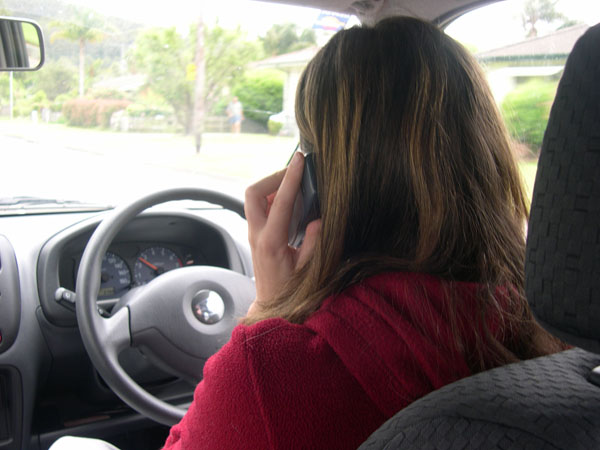
Speed cameras can’t spot mobile phone users, or people without safety belts, or those driving like idiots, or…
Every time I see a young P-plate clown laid back so far in the driver’s seat that he can barely reach the steering wheel, with the stereo blaring so loudly that he will be unable to hear emergency vehicles’ sirens, I get very irritated very quickly.
These jokers are usually driving very slowly – chiefly because they barely have control of their cars – so it’s unlikely that they will ever get into trouble with the law.
Because in this day and age there’s one offence for which a driver is far more likely to get booked than any other. Exceeding the speed limit.
As almost all policing – if policing is the right word – of speed limits is now done by robots there is no-one to spot these laid-back louts, leaving them to pose along in their dangerous way.
It’s not just these noisy idiots with their blaring stereos that get away with murder – and I don’t use the word murder lightly – the clowns who scream in an out of multi-lane traffic also make me angry. They almost invariably get away with it because police patrol cars are a rare sight these days, or are parked behind a bush while the drivers catches up with their paperwork and listens to the financially lucrative sound of the speed camera raking in the ‘bad’ drivers.
Chopping dangerously in and out of traffic is usually done below the speed limit, so again there’s little chance of the fools being booked.
Same with the idiots who use mobile phones. I see them every day, indeed it’s not hard to spot dozens as they wander all over the road at speeds well below the limit endangering the lives of others by composing and/or reading text messages, dialling numbers or simply shouting into the phone to make themselves heard over the sound of the radio and the traffic around them.
This latest nonsense of mounting mobile phones on a special bracket inside the windscreen directly in front of the driver makes me wonder if the world has finally gone mad. Apparently this is not only legal, but encouraged, because it means the phone is hands free.
But speed cameras can’t pick up mobile phone users either.
Nor can they pick up inattentive other drivers who are checking their paperwork, looking at the street directory, telling a hilarious joke to their passengers that involves plenty eye contact.
Speed cameras can’t spot people who aren’t wearing safety belts.
These thoughts crossed my mind last night as I watched yet another Australian police minister on television blaming speed as the number one cause of road crashes. Their numbers worked out to something like 70 per cent of fatalities being due to speeding.
A nonsense figure that flies in the face of research showing that about 95 per cent of crashes are primarily caused by something other than excessive speed.
I do long for a return to the good-old-days, when we had police officers on the road making sensible decisions about each individual case as it happened. And who had the ability to offer leeway on traffic laws when that was the intelligent thing to do.
Then, and only then, will we start to see a significant drop in the road toll.
ewan@marque.com.au








